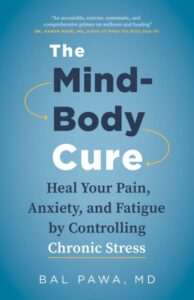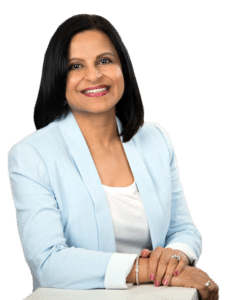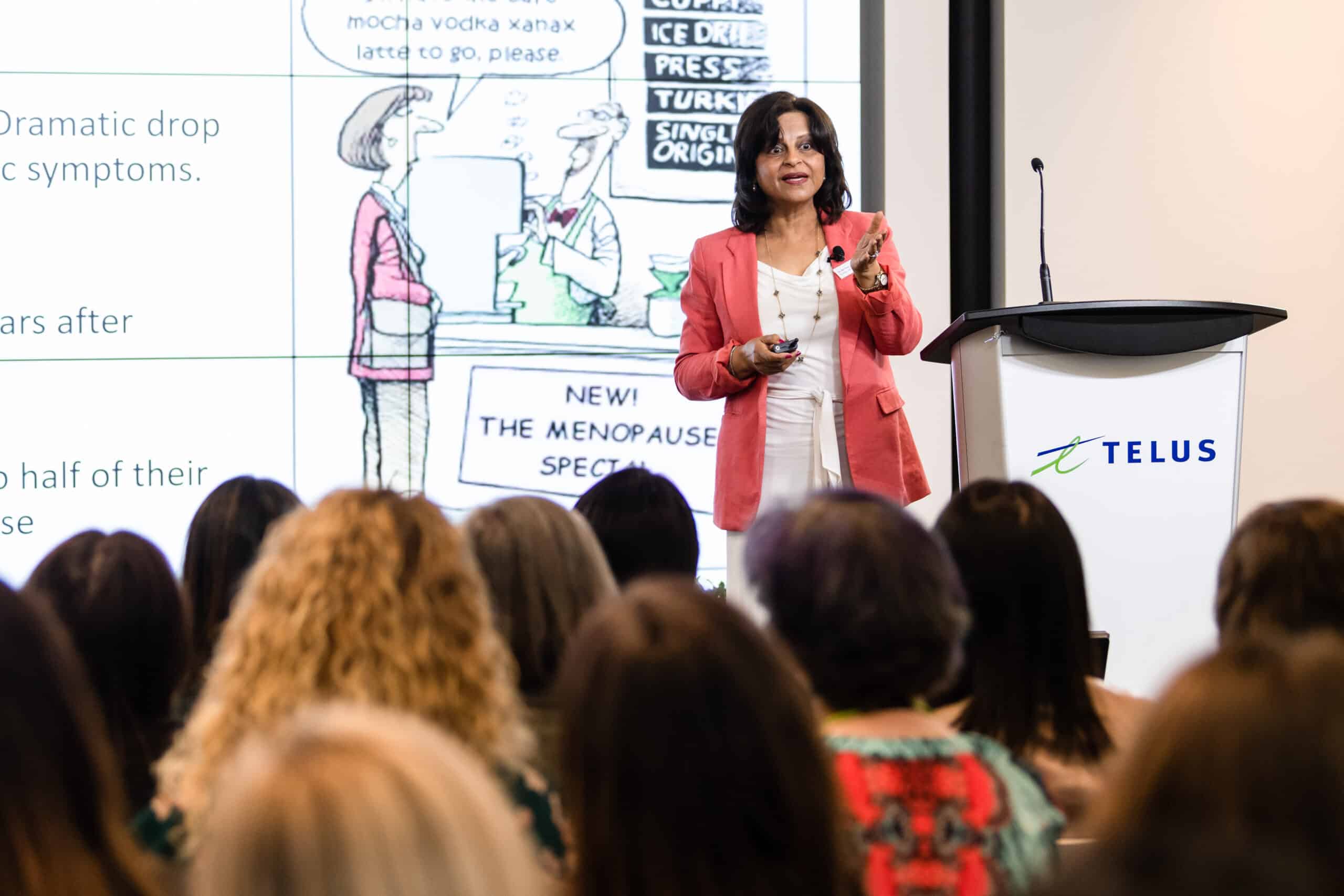The human body is a miraculous invention. It is capable of protecting itself from disease, repairing itself after injuries and maintaining itself in a crisis. But it does require occasional medical assistance to keep running smoothly and fight off pain. Of course, some argue that due to its natural abilities, the human body doesn’t need quite as much help as it typically gets. Bal Pawa, MD, happens to be one of these folks. And given she’s also a Harvard educated medical doctor, her stance holds weight. The author of The Mind-Body Cure: Heal Your Pain, Anxiety, and Fatigue by Controlling Chronic Stress recently spoke to WellWell on issues concerning overdiagnosis and the importance of teaching the body to heal itself.
Your journey towards the Mind-Body Cure began after a traumatic car accident. How did that experience with the medical system lead to the development of your 7-step program?
As a general practitioner, I had already been on the physician side of the medical system. But one day, while I was pregnant, I was driving home from the hospital I worked at and had a head on collision with a truck that landed me in the opposite lane causing even more impact from oncoming traffic. Then I saw the patient side of the medical system. I saw firsthand many of the wonderful things the current system offers, but I was also exposed to some of the deficits.
What were some of the deficits, how’d they lead to finding the mind-body connection?
It took me seven years to fully recover. I had multiple injuries, I lost my baby, I had physical damage to my soft tissue, ribs, and shoulder. I found whenever I’d go to the doctor with a new issue, they’d just prescribe pills. Trouble sleeping? Here’s sleeping pills. More pain? Here’s more painkillers. I started to realize that a vast majority of patients were having symptoms attributed to stress but doctors responded with interventional measures as if it were an emergency situation. I couldn’t do the same work I had been previously, so I went back to medical school to retrain and discovered the mind-body connection, an integrative approach that looked at the body as a whole. It changed my life both personally and professionally.
How does an integrative approach differ from standard medical procedures?
Typically, when you see a doctor, they treat the symptom and not the cause. They offer quick fixes without fully diagnosing the problem therefor often leading to it resurfacing or even creating new ones. For example, if someone is having trouble sleeping, they’ll prescribe sleeping pills. Whereas the integrative approach would be to take a step back question why the symptom is occurring to therefor treat the root cause. If someone is having trouble sleeping, there’s likely a deeper reason that requires more in-depth treatment beyond sleeping pills.
Why do more doctors not include integrative methods to their approach?
They don’t have the time, it’s a very busy world. Patients want the quickest fix so they can get on with their lives and the doctors are usually not equipped with enough resources or time to argue. Unfortunately, most don’t have the ability to sit and explore the integrative approaches and do an appreciative inquiring as to why the patient is having these symptoms.
You hinted at another concern with the over prescription of medication for issues like sleep and depression that have additional side effects which will then create the desire for more medications. How do we break this vicious cycle of symptoms?
Unfortunately, I don’t think there is one definitive fix. Bringing attention towards the issue, supplying more resources to doctors, these would help but they’re not a one step fix. I do think people are becoming more aware of iatrogenesis and complications caused by the medical community. However, over the first nine months of the Covid-19 pandemic, prescriptions of anti-depressants, anti-anxiety medication, and sleeping pills all went up nearly 40 percent. So clearly, it’s still the first option. Of course, mental health and sleep issues rising are understandable given the current climate but there is risk of the hangover effect from the pills you took the night before. They often decrease focus, memory, concentration, so it’s a domino effect and at a point drugs are the only option.
So, you’re not saying completely throw away traditional medicine?
Of course not. I’m still an allopathic doctor. I’m a pharmacist and a medical doctor and there are situations where there’s severe depression and we need to have medication to get them back to a functioning state. But what I’m trying to point out is that we need to give patients tools so they can look after themselves and focus on prevention and if we need intervention, let’s introduce it when we need it but not immediately at the front of the spectrum.
Similarly, as you’ve mentioned, are a medical physician, who graduated from Harvard. How important is it that someone as qualified and educated delivers the message on the power of natural medicine and the mind-body connection, from?
It’s interesting. My son is an emergency room physician and I’m very much about integrative health and prevention and we’ve had some really healthy discussions at the dinner table and absolutely, you need both fields and perspectives. When someone ends up at emergency with a collapsed lung, when someone’s in septic shock, when they’re in severe psychiatric breakdown, you obviously need traditional intervention. But our medical system is so overburdened. In Canada we have long waiting lists, in the US you have so many people without healthcare altogether.
Both systems are having problems. We have a very sophisticated medical system and we need intervention, absolutely, to save lives. But if we put more focus, resources, time and money into prevention by educating patients and giving them back their natural power and teaching them to restore their own health, we’d be much better off. If 80 percent of their symptoms are due to the way their mind is manufacturing cortisone adrenaline, the stress hormones, then we need to give the responsibility and tools back to patients to take control of their own health.
Any quick advice on how to take control back?
With all the emphasis on news media, it’s easy to get caught up in fear but it’s important to just take a breath, stop and recalibrate. Say, “I can control a lot of things, I have the ability to heal myself and I have a lot of control over my life” and use your mind to create an internal neutral environment so that it’s not reacting, it’s responding in a deliberate, measured fashion to improve health and optimize stress hormones.
 About Bal Pawa, MD
About Bal Pawa, MD
Dr. Bal Pawa has spent more than thirty years in healthcare, first as a pharmacist and more recently as a physician with a focus on women’s health. She studied mind-body medicine at Harvard Medical School and is a co-founder of Westcoast Women’s Clinic in Vancouver, BC.
Learn more at www.drbalpawa.com













